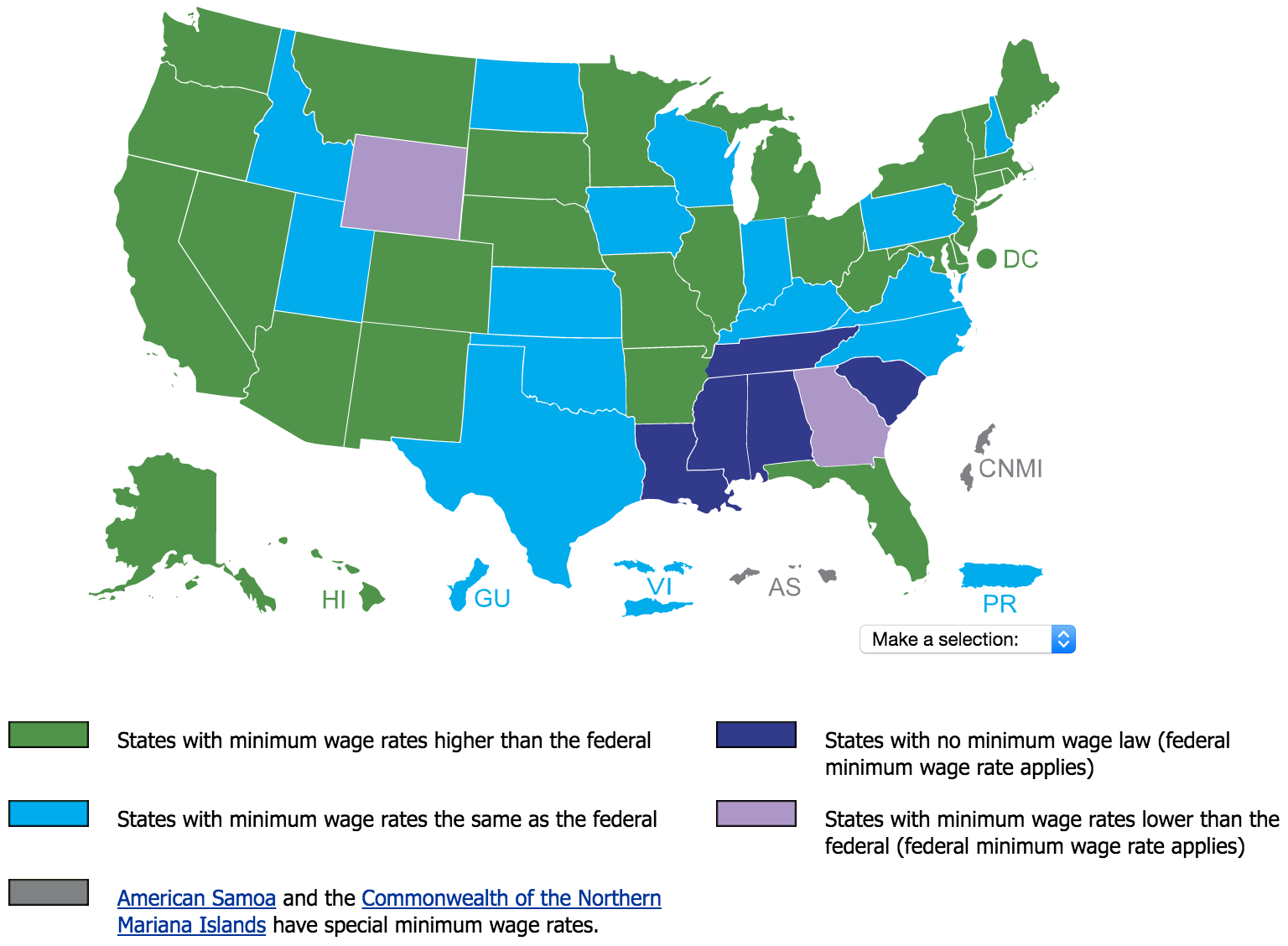Yesterday, the governors of California and New York reached agreements with state lawmakers to become the highest-paid minimum wage states in the country with an increase to $15 an hour. A minimum wage bill passed the California legislature on Thursday, and Gov. Jerry Brown said he will sign the measure on Monday. Late that night across the country, Gov. Andrew Cuomo reached a tentative agreement with New York’s top legislators to do the same with the state’s base wage.
According to the AP, President Barack Obama, who first proposed an increase to the $7.25 federal minimum wage in 2013, applauded the states’ actions and called on the Republican-controlled Congress to “keep up with the rest of the country.”
Currently, California and Massachusetts are tied for the highest state minimum wages at $10 an hour, while New York’s current rate is $9. Only Washington, D.C., at $10.50 per hour, is higher.
From the Department of Labor, here’s a look at how your state measures up:
Both California and New York plan to phase in the new rates, which will impact about 2 million employees in each state. In California, the increases would start with a boost from $10 to $10.50 on Jan. 1, and businesses with 25 or fewer employees would have an extra year to comply. Increases of $1 an hour would come every January until 2022, although the governor could delay these increases in the event of significant budgetary or economic downturns.
Cuomo originally proposed a simpler adjustment in New York: three years in New York City and six years in the rest of the state. Negotiations with local lawmakers who expressed concern the sharp increases would “devastate” business owners produced a more gradual approach. The AP reported, “In New York City, the wage would increase to $15 by the end of 2018, although businesses with fewer than 10 employees would get an extra year. In the suburbs of Long Island and Westchester County, the wage would rise to $15 by the end of 2022. The increases are even more drawn out upstate, where the wage would hit $12.50 in 2021, then increase to $15 based on an undetermined schedule.”
These changes come as considerable progress for the “Fight for 15” movement to raise minimum wages across the country. As Will Kramer reported in Risk Management magazine, debates over income inequality in the United States and the “Fight for 15” movement have gathered strength over the past five years. Many credit the Occupy Wall Street movement that began in New York City’s Zuccotti Park in September 2011 with spurring the increased focus on wealth and economic inequality, particularly the divide between the 99% and the 1%.
The impacts have been gaining further momentum recently. Kramer explained, “As of mid-2015, Seattle, San Francisco and Los Angeles have begun phasing in a $15 minimum wage. Democratic presidential candidate Sen. Bernie Sanders introduced Congressional legislation to raise the federal minimum wage to $15 per hour. What was once considered inconceivable has become more and more commonly accepted as a necessary and even moral imperative for many American businesses.”
Similar Posts:
- California Seeks to Limit Pro Athlete Workers Comp Claims
- Understanding New York’s New Insurance Disclosure Requirements
- Amid Wildfires, California’s Emergency Warning Systems Take Heat
- California Town Must Improve Risk Management or Lose Insurance Coverage
- RIMS Report: The California Consumer Privacy Act of 2018
